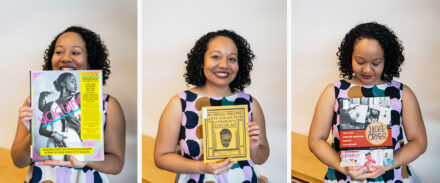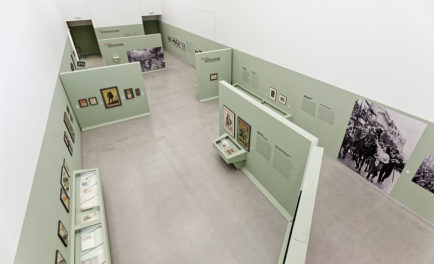Today art historians and librarians from Europe and the United States are coming together at New York’s Metropolitan Museum of Art at “The Future of Art Bibliography in the 21st Century.” This meeting, funded by the Kress Foundation and organized by the Getty Research Institute (GRI), along with our colleagues Rüdiger Hoyer from the Zentralinstitut für Kunstgeschichte, Munich, and Jan Simane from the Kunsthistorisches Institut in Florence, and chair of the Art Libraries Section of International Federation of Library Associations and Institutions (IFLA), acknowledges that art bibliography is at a turning point. Its objective is to launch a serious discussion within the art historical community about what a sustainable, collaborative, and truly international art bibliography might look like and how it might be achieved.
“The Future of Art Bibliography in the 21st Century” comes in the midst of a tectonic shift in the way the international art historical community conducts bibliographic research. The digitization and online availability of an ever-increasing number of journals, images, and primary resources has and will continue to revolutionize research processes. At the same time, the proliferation first of catalogues and bibliographic databases and, more recently, of other types of online resources has led to duplications and redundancies.
Recent efforts toward streamlining research include artlibraries.net, a single search portal for more than 35 major art library catalogs, both in Germany, where the project originated, and abroad (the GRI is a collaborating institution), and arthistoricum.net, which aggregates an even wider range of bibliographic materials. These and related sites are thriving examples of the possibilities at the convergence of bibliographic and social tools. Collectively they expand research horizons and further beg the question of the future of art bibliography.
It is against this landscape of fundamental change that the GRI has reoriented its bibliographic priorities from full support for a single cataloguing project to an exploration of discipline-wide reorganization of access to art historical knowledge. Last year’s budget cuts within the Getty hastened this process, leading the GRI to end its support for the compilation of the Bibliography of the History of Art (BHA), a searchable database of periodicals, books, exhibition and dealer’s catalogs, conference proceedings, and bibliographies concerning the visual arts.
The GRI had assumed sole oversight of the BHA in 2007, when its French partner, the database publisher Institut de l’Information Scientifique et Technique (INIST)—CNRS, withdrew from the project. The GRI then sought a partner to defray the additional annual cataloguing costs and to help transform the BHA into a truly global resource, expanding its traditional focus on European art to include Asian, African, and Latin American art. After two years in which no institution stepped forward to assist with the BHA, the GRI decided to cease updating the database.
Recognizing, however, the scholarly importance of the information previously catalogued, the GRI is now making the BHA universally and freely available online at http://www.getty.edu/research/conducting_research/bha/, vastly expanding its accessibility to students and scholars worldwide.
The GRI has now embarked on the next step of this exploration of the future of art bibliography with today’s convening. Planning this meeting has been a truly collaborative process, and we are grateful for the support of the Kress Foundation, and the Met’s Watson Library and ARTStor/Mellon, which have opened their doors to us.
Today’s open meeting will provide the groundwork for a meeting tomorrow of a smaller task force. Over these two days we hope to reach preliminary consensus about what may be feasible and necessary for art bibliography in the 21st century, and to foster some important face-to-face communication with international colleagues that will encourage continuing dialogue and future action. The discussion will continue at the Art Libraries Society of North America (ARLIS/NA) meeting in Boston immediately following, and in August at the IFLA Art Libraries Section in Sweden.
The outcomes of our discussions today and tomorrow will be shared online with the art historical community, and we will keep you posted at The Iris.





Comments on this post are now closed.